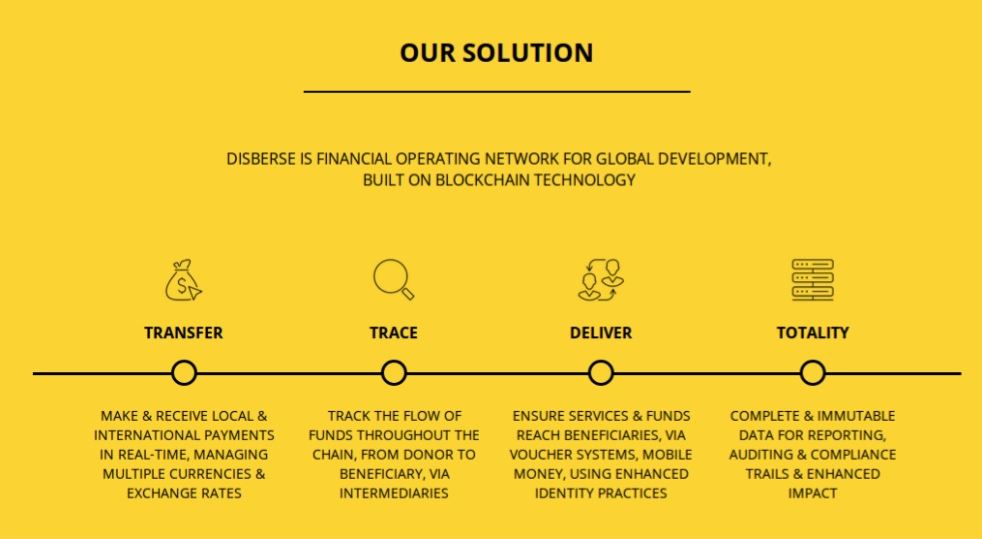The first in a series of tests looking to bring greater efficiency and transparency into humanitarian funding has taken place with positive results.
The test into blockchain technology enabled Dorcas to transfer funds from its international office in the Netherlands to its Albania country office. Using the Disberse blockchain platform, the cross-border transaction of e-money was almost instant and enabled Dorcas to trace the funds through an immutable record of the transaction.
This ‘proof of concept’ was the first in a series of tests that is planned ahead of a formal partnership between Start Network and Disberse, a fund distribution platform for global aid, built on blockchain technology. The partnership aims to harness the potential of blockchain - the same revolutionary digital technology that underlies Bitcoin - for humanitarian financing.
Dorcas is the first Start Network member to pioneer the use of blockchain technology in this way, transferring a small amount of funding – €5000 – via the Disberse platform to an international office. Disberse acts as an electronic money provider to guarantee, issue and distribute the funds more transparently and efficiently on the Ethereum blockchain.
A Start Network review found that the main benefits centred around the traceability of funds through the creation of an immutable record of transactions. Direct cost savings - a 1.15% saving was reported - were limited due to the amount of funding involved, in a crisis situation with greater funds, larger cost savings are expected. Feedback from the participants at Dorcas also noted the ease of use of the platform, and its applicability for humanitarian aid transfers.
Now the Start Network and Disberse are working on a larger pilot, with more organisations involved, larger sums of money, and a broader geographic reach. They anticipate that this will show greater efficiency gains, which will help take the project to scale in Start Network’s existing programmes. The network has deployed more than £100 million of funds globally over the past four years, responding to crises and developing innovative humanitarian solutions.
Sean Lowrie, Director of the Start Network said:
“This exciting test shows that transformation in the way money flows through the humanitarian system is not only needed, but it is possible. The Start Network is testing innovative solutions to many humanitarian challenges to enable aid agencies to be more efficient and effective. This new project with Disberse aims to catalyse a new way of working, one that is transparent, fast and which drives accountability to taxpayers and those affected by crises.”Nico Hoogenraad, Director of Finance of Dorcas Aid commented: ‘A journey of a thousand miles starts with a simple step’.
Paul Currion, Chief Operating Officer of Disberse, said:
“We’re very happy that the test has had a successful completion, but we’re happier still that a longer-term relationship has had a flying start. The potential of blockchain to transform the way the humanitarian sector does business is only just beginning to be explored, and we’re excited about the future.”
The preliminary work by Start Network has been made possible by a €50,000 donation from the government of Estonia, which is leading the world in its drive to adopt the new technology.
Disberse is part of the UK Financial Conduct Authority (FCA) Regulatory Sandbox, which allows innovative financial businesses to test products, services, business models and delivery mechanisms, and this pilot formed part of its testing schedule. Disberse received its E Money license at the start of this year.
*An earlier successful test of the Disberse platform enabled the UK-based development charity Positive Women save 2.5% on transfer fees. The saving enabled Positive Women to fund an additional three students’ fees for a year.

